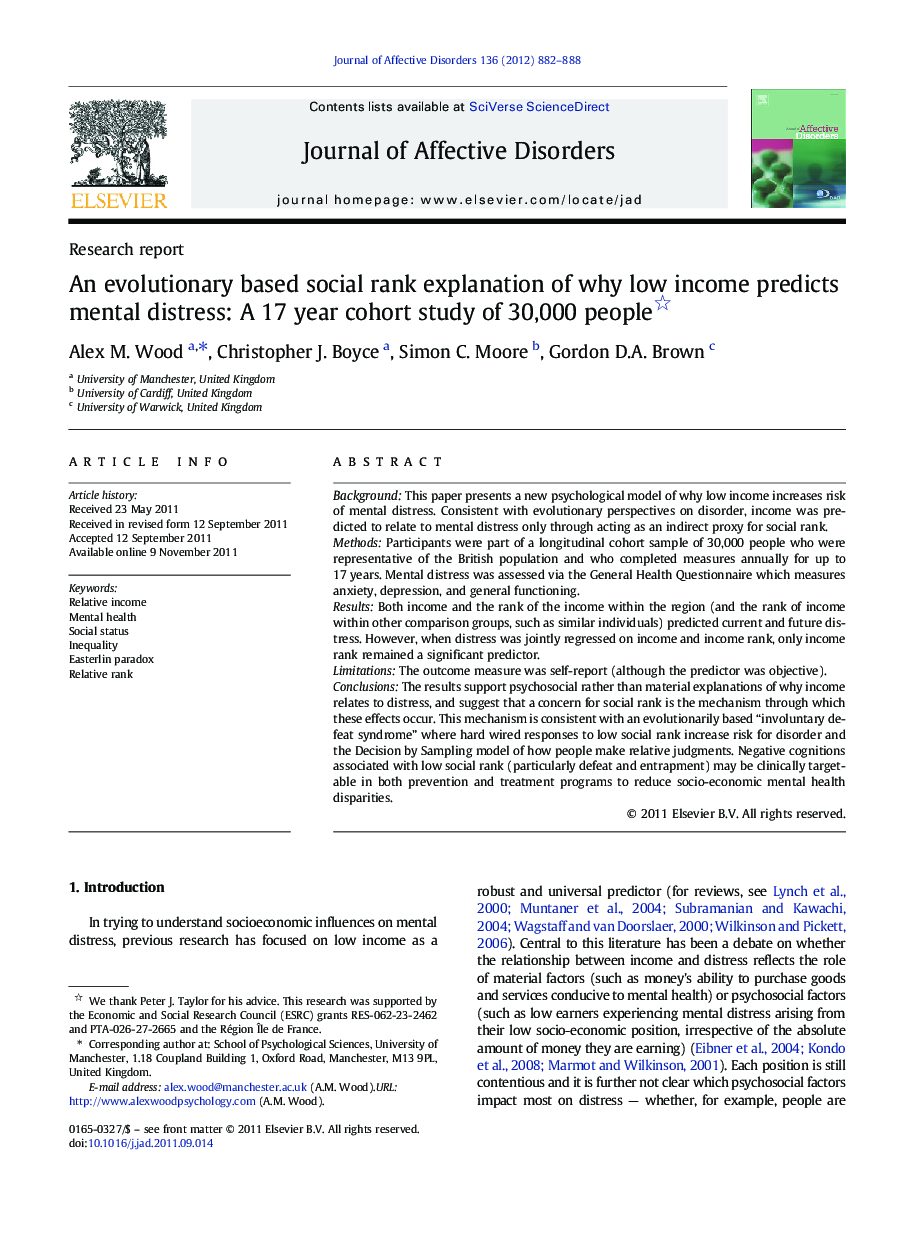| کد مقاله | کد نشریه | سال انتشار | مقاله انگلیسی | نسخه تمام متن |
|---|---|---|---|---|
| 6235539 | 1277587 | 2012 | 7 صفحه PDF | دانلود رایگان |

BackgroundThis paper presents a new psychological model of why low income increases risk of mental distress. Consistent with evolutionary perspectives on disorder, income was predicted to relate to mental distress only through acting as an indirect proxy for social rank.MethodsParticipants were part of a longitudinal cohort sample of 30,000 people who were representative of the British population and who completed measures annually for up to 17Â years. Mental distress was assessed via the General Health Questionnaire which measures anxiety, depression, and general functioning.ResultsBoth income and the rank of the income within the region (and the rank of income within other comparison groups, such as similar individuals) predicted current and future distress. However, when distress was jointly regressed on income and income rank, only income rank remained a significant predictor.LimitationsThe outcome measure was self-report (although the predictor was objective).ConclusionsThe results support psychosocial rather than material explanations of why income relates to distress, and suggest that a concern for social rank is the mechanism through which these effects occur. This mechanism is consistent with an evolutionarily based “involuntary defeat syndrome” where hard wired responses to low social rank increase risk for disorder and the Decision by Sampling model of how people make relative judgments. Negative cognitions associated with low social rank (particularly defeat and entrapment) may be clinically targetable in both prevention and treatment programs to reduce socio-economic mental health disparities.
Journal: Journal of Affective Disorders - Volume 136, Issue 3, February 2012, Pages 882-888